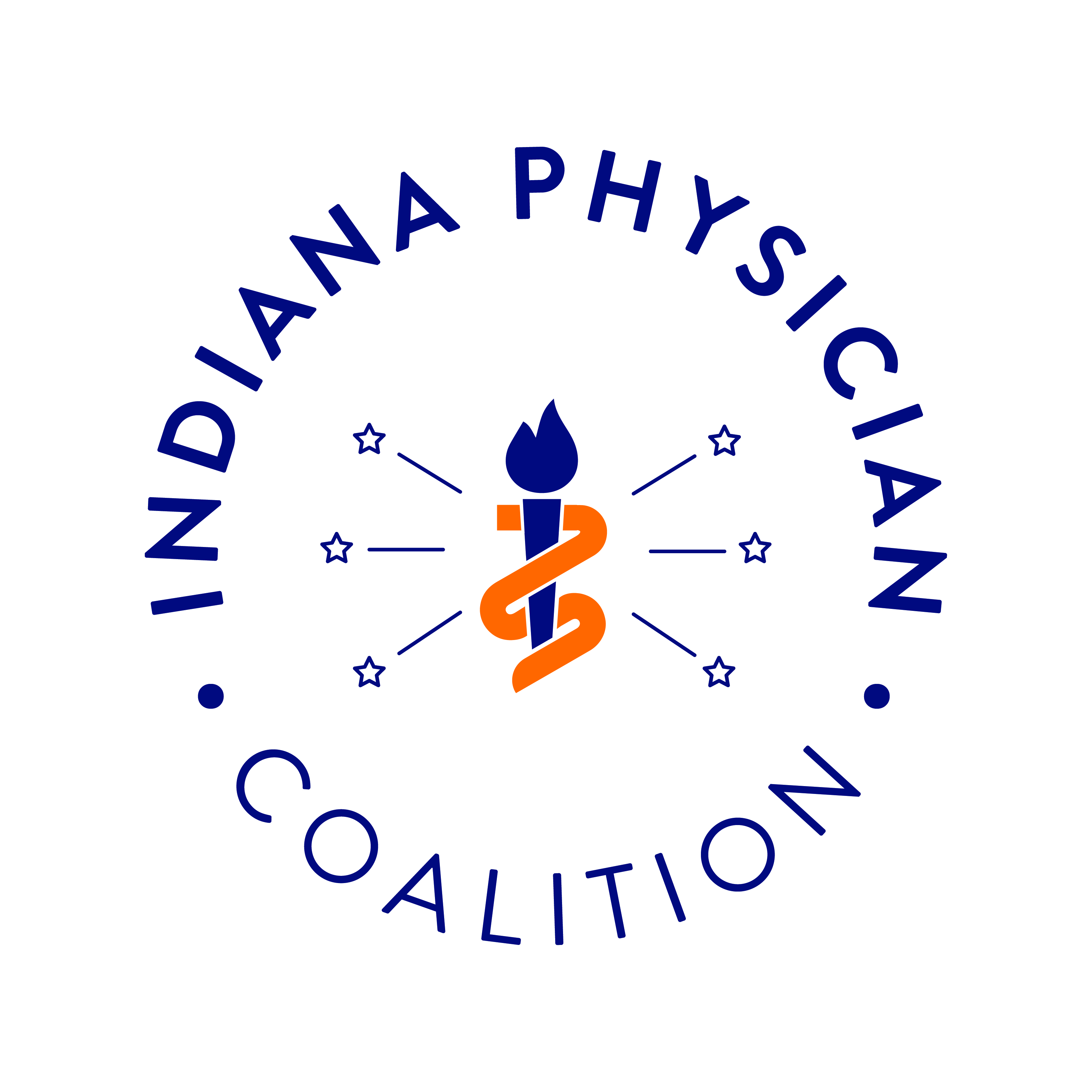 Across the U.S., nonphysician health professionals are continuing attempts to expand their scope of practice. Now, a group of Indiana health care leaders has come together to launch a new alliance of medical associations and specialty societies. Known as the Indiana Physician Coalition, its mission is to ensure that health care in Indiana continues to be led by physicians and is delivered with a team-based approach.
Across the U.S., nonphysician health professionals are continuing attempts to expand their scope of practice. Now, a group of Indiana health care leaders has come together to launch a new alliance of medical associations and specialty societies. Known as the Indiana Physician Coalition, its mission is to ensure that health care in Indiana continues to be led by physicians and is delivered with a team-based approach.
The proactive effort will be launched in January by ISMA, in part from a grant awarded by the AMA to help fund scope of practice partnerships at the state level. ISMA successfully advocated against an inappropriate scope expansion by advanced practice registered nurses (APRNs) in 2019 by the Indiana General Assembly.
The new group’s members include physicians, residents in training and medical students from ISMA, the Indiana Osteopathic Association and specialty societies in anesthesiology, dermatology, emergency medicine, family medicine, ophthalmology, orthopedics, psychiatry, radiology and surgery. In all, the coalition is more than 10,000 physicians strong.
“As other states have allowed independent practice by advanced practitioners, it’s critical that our members join with other physicians to oppose ‘scope creep’ in Indiana,” said Roberto Darroca, MD, president of the ISMA. “By coming together, we can more effectively advocate to protect scope of practice from inappropriate expansion and support other legislation that will protect patients from harm, increase access to quality care and help control health care spending.”
ISMA members will automatically receive updates and legislative alerts from the coalition once it officially launches in January. A dedicated coalition website will allow all physicians to sign up for updates and find more information about scope-related issues after the 2021 session of the Indiana General Assembly gets underway.
Meanwhile, physicians are encouraged to visit and “follow” the coalition on social media as a lead-up to the public launch.
Twitter - IN_physicians
Facebook - IndianaPhysicians
Health care teams need leaders
Health care is often delivered with a team-based approach, which includes physicians and other health professionals working together, sharing decisions and information for the benefit of the patient. The coalition is advocating to ensure that physicians, the most highly trained medical providers, will continue to lead this team-based approach in Indiana.
“Health care teams require leadership, just as teams do in sports,” said Dr. Darroca. “Physicians bring to the team the highest level of training and preparation, and, because of that, we are the best suited to guide other members of the team in the care of our patients.”
New physicians accumulate up to 16,000 clinical hours by the time they complete their training. It takes seven to 12 years of preparation for practice, including four years of medical school and three to eight years of residency training and fellowship in a medical or surgical specialty.
And yet, many patients are unaware of who may be providing their medical treatment.
In an independent survey of Indiana citizens regarding the management of a patient’s care, the coalition found that 1 out of every 4 Hoosiers were not confident that the provider who had seen them over the past few years was a physician, rather than an advanced practitioner. Examples of advanced practitioners include a nurse practitioner (APRN), nurse anesthetist (CRNA), nurse midwife (APRN), optometrist, pharmacist, physician assistant, podiatrist, psychologist or other clinician.
“There is no doubt that all of our colleagues play a vital role in the health care workforce, each according to their training,” said Lauren Stanley, MD, president of Indiana’s chapter of the American College of Emergency Physicians.
“I work closely with APRNs and rely on them to help care for my patients. However, a physician-led care team model is still vital for high-quality patient care, given the skills and experience of a physician,” Dr. Stanley said.
Hoosiers trust Indiana physicians
In its statewide survey, the coalition also found that patients prefer their health care to be led by a physician. More than 3 out of 4 Hoosiers over the age of 40 believe that physicians should have primary responsibility for leading and coordinating their health care.
Other findings include:
- 83% of Hoosiers believe that physicians and nurse practitioners need to work in a coordinated manner to ensure that patients get the care they need.
- 76% of Hoosiers believe that, in the event of a medical complication or emergency, a physician's education and training are necessary to ensure patient safety.
- 73% of Hoosiers believe that nurse practitioners treating patients with one or more chronic diseases should be overseen by physicians.
“At the end of the day, the quality of your health care really depends on the qualifications of the professional leading your medical team,” added Dr. Stanley. “That’s why Hoosiers want to know that the person responsible for their health care has the necessary education and training to help them make the best decisions.”
Stay tuned to the ISMA for further updates as the Indiana Physician Coalition prepares for its public launch in January.